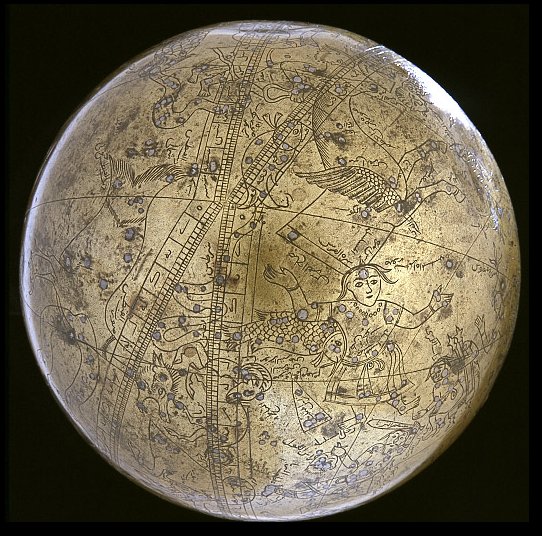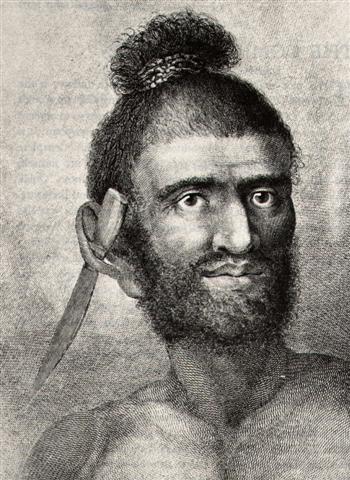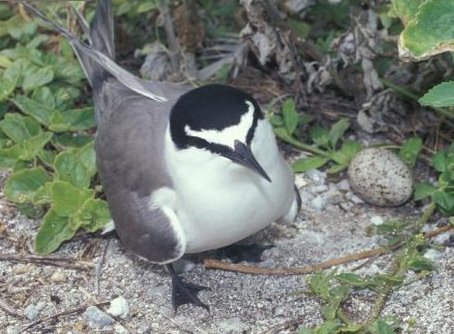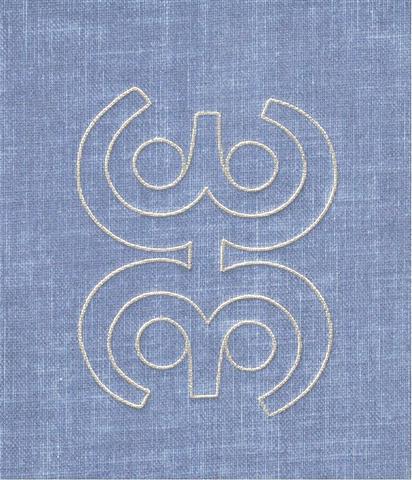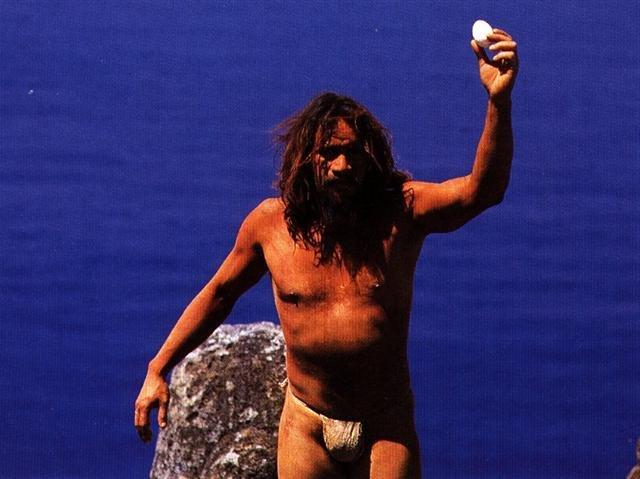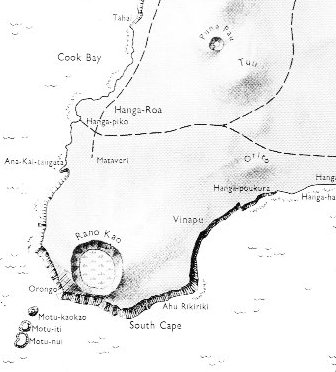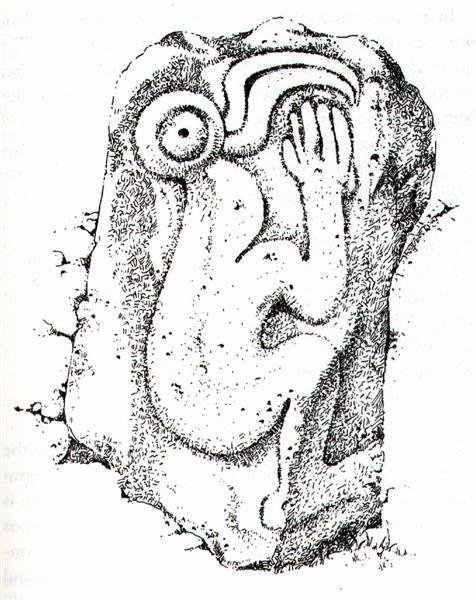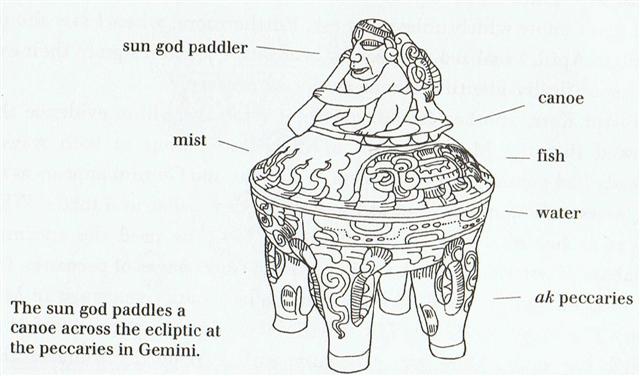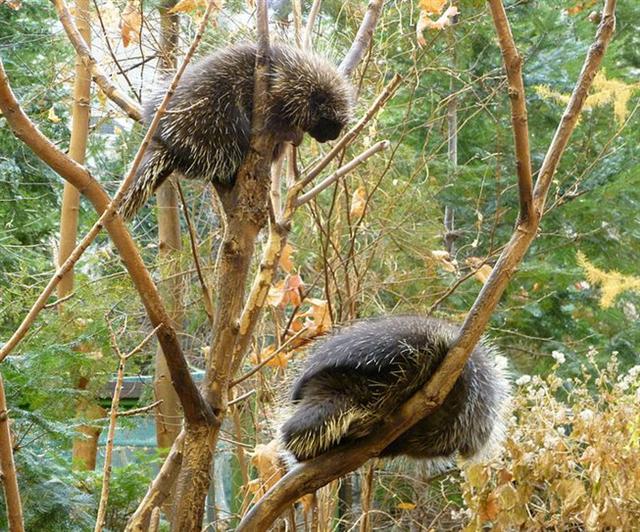They all went uphill to the yam plantation and this place should have corresponded to the Babylonian Field with the Rising Fish Anunitum, i.e. in a way they went up to 1-iku. ... They all went up to the yam plantation of Kuukuu [earlier named Ngukuu]. Once they had arrived there, Ira stayed for one month [etahi marama]. (Ika Hiva is cited as the source of this tradition.) [???] ... anake ki te uhi a Kuukuu.he tuu he noho a Ira etahi marama. i roto i a Ika hiva.(1) ... [E:47] 1-iku ↔ Ika hiva.(1): ... Ana Roto was a name for Spica. And if a Beaver (Lat. Castor) could be referred to as Kiore Hiva, then his immortal brother visible up in the sky together with his father might have been referred to as Ika Hiva ... ... Though Andromeda has its roots most firmly in the Greek tradition, a female figure in Andromeda's place appeared in Babylonian astronomy. The stars that make up Pisces and the middle portion of modern Andromeda formed a constellation representing a fertility goddess, sometimes named as Anunitum or the Lady of the Heavens ... This 'yam plantation' had been pushed ahead by the precession since around 26000 / 4 = 6500 years ago. Counted from the December solstice to March 21 there were 91 days, and now the topknot of Taranga rose with the Sun not at the solstice but at the equinox.
... Maui was the fifth and youngest of his parents' sons, yet when he was born his brothers knew nothing of it. They first learned that they had a brother when he was discovered one night standing behind them in the great meeting house. Everyone was present, the four brothers, their mother Taranga, and all the relations, and there was dancing going on, when little Maui crept into the house unseen, and went and sat behind his brothers. When it came to their turn to dance, and their mother stood them up and counted them so as to be ready, he stood up with them. 'One, that's Maui mua; two, that's Maui roto; three, that's Maui taha; four, that's Maui pae', she said; these names mean Maui the first, Maui the middle, Maui the side, and Maui the edge. Then she saw this other child standing with them, and cried out, 'Hullo, where did this one come from?' 'I'm your child too', Maui replied. So she counted them again and said, 'Oh no, there ought to be only four of you. This is the first I've seen of you.' And so there was a scene, with little Maui and the old woman arguing about it in the middle of the rows of dancers. In the end she became annoyed with him. 'Now, come on, out of the house!' she said. 'You are no child of mine, you belong to someone else. Go home!' But little Maui stood up for himself. 'Well then, I'd better go, I suppose', he said. 'Since you say so, I must be someone else's child. But I did think I was yours, because I know I was born at the edge of the sea, and you cut off a tuft of your hair and wrapped me in it and threw me in the waves. After that the seaweed took care of me and I drifted about in the sea, wrapped in long tangles of kelp, until a breeze blew me on shore again, and some jelly-fish rolled themself around me to protect me on the sandy beach. Clouds of flies settled on me and I might have been eaten up by the maggots; flocks of seabirds came, and I might have been pecked to pieces. But then my great-ancestor Tama nui ki te rangi arrived. He saw the clouds of flies and all the birds, and he came and pulled away the jelly-fish, and there was I, a human being! Well, he picked me up and washed me and took me home, and hung me in the rafters in the warmth of the fire, and he saved my life. And I grew, and eventually I heard about the dancing you have here in this house, and that is what brought me here tonight.' Now Taranga listened to all this in amazement. For in the custom of our people, if a child was born before it finished growing in its mother's womb and died without knowing any of the pleasures of life, it was supposed to be buried with special prayers and ceremonies, otherwise it became a kind of evil spirit, always doing mischief to the human race and hurting them out of spite, because of having missed the happiness that they enjoy. All the evil spirits had a beginning of this sort. So Maui was a little demi-god of mischief. The story he had told was true, and as his mother listened she remembered it all. 'From the time I was in your womb,' Maui went on, 'I have known the names of these children of yours. Listen,' he said as he pointed to his brothers in turn. 'You are Maui mua, you are Maui roto, you are Maui taha, and you are Maui pae. And as for me, I am Maui potiki, Maui-the-last-born. And here I am.' When he had finished, Taranga had to wipe her eyes because there were tears in them, and she said: 'You are indeed my lastborn son. You are the child of my old age. When I had you, no one knew, and what you have been saying is the truth. Well, as you were formed out of my topknot you can be Maui tikitiki a Taranga.' So that became his name, meaning Maui-formed-in-the-topknot-of-Taranga. And this is very strange, because women in those days did not have topknots. The topknot was the most sacred part of a person, and only men had them ...
The name Taranga could have been alluded to in the names Ataranga and Taana:
(E:5) ... During the time of Ataranga, the people built boats, put them into the water, went on board, and sailed off (across the sea) to find a land where people could (safely) live. During the time of Taana, Taana spoke to his three sons: 'Untie your boat [double-canoe, tokorua vaka], fellows! Sail away and look for the land where the great king can live (safely in the future)!' The boat anchored in front of the three (islets) Motu Nui, Moto Iti, and Motu Kaokao. They had sailed away and had looked for the (new) land, but the boat did not return to its homeland, Maori. ... Based upon the fact that toko in New Zealand also means 'rays of light', it has been suggested that the original props which separated and held apart Sky and Earth were conceived of as shafts of dawn sunlight. Many people perished during the time of Taana. Taana spoke to his assistants (titiro): 'Pick up the keel and lay it down (at the building site) and construct a boat (miro), young men! The boat shall be for the people (mahingo) and also for the king, so that we can all set out and look around to see whether there isn't (somewhere) (the possibility of) escape for the people.' They built the boat during the time of Taana. Thus, everything remained (in its place) until Taana died. Taana passed on his royal power to Matua. Matua established himself (as ruler). They built boats during the time of Hotu ... The 3 sons of Taana did not return home. Instead they (= Nga Kope Ririva Tutuu Vai A Te Taanga) marked where the manu tara birds 'alighted'.
Tara. 1. Thorn: tara miro. 2. Spur: tara moa. 3. Corner; te tara o te hare, corner of house; tara o te ahu, corner of ahu. Vanaga. (1. Dollar; moni tara, id.) 2. Thorn, spike, horn; taratara, prickly, rough, full of rocks. P Pau.: taratara, a ray, a beam; tare, a spine, a thorn. Mgv.: tara, spine, thorn, horn, crest, fishbone. Mq.: taá, spine, needle, thorn, sharp point, dart, harpoon; taa, the corner of a house, angle. Ta.: tara, spine, horn, spur, the corner of a house, angle. Sa.: tala, the round end of a house. Ma.: tara, the side wall of a house. 3. To announce, to proclaim, to promulgate, to call, to slander; tatara, to make a genealogy. P Pau.: fakatara, to enjoin. Mq.: taá, to cry, to call. 4. Mgv.: tara, a species of banana. Mq.: taa, a plant, a bird. Ma.: tara, a bird. 5. Ta.: tara, enchantment. Ma.: tara, an incantation. 6. Ta.: tara, to untie. Sa.: tala, id. Ha.: kala, id. Churchill ... The sooty tern (manu tara) comes to breed in large numbers in July or August off the southwestern point formed by the crater of Rano-kao on three rocky islets, of which the only one accessible to swimmers is Motu-nui. What commenced as an ordinary food quest for eggs became an annual competition to obtain the first egg of the season. The warriors (matatoa) of the dominant tribe entered servants for the annual Derby, and members of defeated tribes were not allowed to take part in the competition. The selected servants swam over to Motu-nui and waited in caves for the migration of the birds. The warriors and their families assembled on the lip of Rano-kao that overlooked the course. Owing to the strong wind, they built houses of stone for shelter at the village named Orongo, the Place-of-listening. There they listened for the coming of the birds and waited for the call of the successful servant who found the first egg. While waiting they amused themselves with singing and feasting and carved on the adjacent rock figures with birds' heads and human bodies, the symbol of Makemake, god of fowls and sea-birds.
In time, rules and ritual were developed about this annual competition which became the most important social event on the island. The successful servant leaped onto a rocky promontory and shouted across the water to his master 'Shave your head. The egg is yours.'
A sentry on watch in a cave below Orongo, termed the Bird-listener (Hakaronga-manu), heard the call and relayed the message up to the waiting masters. The successful master was termed the Bird-man (Tangata manu). On reception of the egg, the people escorted him to Mataveri, where a feast was held in his honour.
After that he went into seclusion for a year in a house at Rano-raraku. The details of his functions and privileges are not known, but certain it is that he was held in high honour and provided with food by the people until the next annual Derby took place. The list of Bird-men was memorized and transmitted like a list of kings. The bird cult is not known elsewhere in Polynesia and is clearly a local development arising out of peculiar local conditions. The importance of the fowl as the sole domesticated animal, the annual migration of the sooty tern to a near-by islet to breed, the village of Orongo with its carved rocks overlooking the course, and the development of the bird cult are all in a natural sequence that could have occured nowhere else but on Easter Island ...
However, the C text was evidently beginning with Sirrah, viz. when the topknot (tikitiki) of Taranga - at the Navel of the Pegasus Horse - had been at the Full Moon. In Roman times this would have occurred in day 53 ↔ E:53.
|
||||||||||||||||||||||||||||||||||||||||||||||||||||||||||||||||||||||||||||||||||||||||||||||||||||||||||||||||||||||||||||||||||
.
